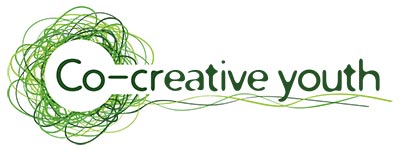On average, each European citizen produces 503 kg of municipal waste per year. Nowadays, the economy model generates consumerism to excess reaching the loss of fundamental value of things. A new product flow continuously renews what has been installed on the market a few weeks ago, and we prefer throw away thing instead of repair it.
Recycling and reuse are important in the general strategy of waste management in the European Union. Overall, European countries of the north and west have higher recycling rates than in the south and east. The European Union has committed to recycle half of its waste and to "practically eliminate" discharges by 2020. EU policies give priority to the reduction in the Reuse and the Recycling of waste by educating its audience to the acquisition of behaviors environmentally; it is also the policy of the 3 R of COP21. At the heart of the same device of COP21 we can include the promotion of an effective policy of using resources, circular economy and innovation.
In this context, innovative private initiatives to promote the development of the waste recovery sector are emerging. This is the case of “ressourceries” which are imposed in recent years as key players in waste management, in order to meet a twofold crisis: economic crisis, "which challenges our consumption model ', and environmental crisis, which requires us to limit our use of resources. RREUSE, a European network that brings together associations and federations active in the reuse / recovery of 11 countries (including France, Belgium, Spain, Italy). 50 adherent structures Ressourceries network are spread throughout France and employs nearly 1,500 people. The Belgian network operated by the Ressourceries RESOURCES association has 70 active social enterprises in the reuse, recycling and resource recovery. In Spain you can also find actors rooted in the territory as AERESS (Asociacion Espanola de Economia Recuperadores Social y Solidaria), which groups 31 organizations specializing in reuse. Italy and Portugal are doing efforts in identifying good practices as The Alligatore (Italy) or Maia recycling industry that has developed in recent years thanks to Ecoponto em Casa project; Sweden is one of the most advanced countries on these issues and which examples as Alelyckan "Re-use Park" serve as inspiration.
Collection, refurbishment, recycling or resale of objects condemned to the waste, these initiatives combine waste reduction and job creation. Implementing useful economic activities in its territory and its inhabitants, these centers also become an excellent tool of employability, especially among young and low-skilled public, when the unemployment curve continues to rise inexorably within the European Union. Resale of objects is the result of the re-use sector / repair / reuse and ensures a share of resources to ensure sustainability of the valuation items. However, in the field of vocational training, it is tentatively referred to the mobilization plan for jobs and professions of the green economy. The training for the development of skills both in the field of recovery and the eco-design are almost nonexistent in Europe.

